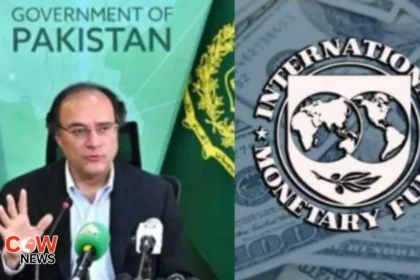The arrival of Kyrgyzstan Prime Minister Akylbek Japarov in Islamabad for the Shanghai Cooperation Organization (SCO) summit marks a significant moment for both Kyrgyzstan and Pakistan, reflecting the deepening ties between the two nations. As the SCO brings together member states to discuss regional security, economic cooperation, and political stability, Japarov’s participation highlights Kyrgyzstan’s commitment to fostering collaboration within this influential organization. This article explores the implications of Japarov’s visit, the significance of the SCO, and the potential outcomes of the summit for regional cooperation.
Understanding the SCO
The Shanghai Cooperation Organization (SCO) is a geopolitical and security alliance founded in 2001, which includes eight member states: China, India, Kazakhstan, Kyrgyzstan, Pakistan, Russia, Tajikistan, and Uzbekistan. The organization aims to promote political, economic, and military cooperation among its members, with a strong focus on combating terrorism, separatism, and extremism. In recent years, the SCO has expanded its agenda to include trade, investment, and cultural exchange, thereby playing a crucial role in shaping the geopolitical landscape of Asia.
The SCO summit serves as a platform for member states to discuss pressing regional issues, share perspectives on global challenges, and enhance bilateral relations. The significance of Japarov’s presence at the summit lies in the opportunity for Kyrgyzstan to strengthen its ties with Pakistan and other member states, fostering a collaborative approach to addressing shared challenges.
Bilateral Relations Between Kyrgyzstan and Pakistan
Kyrgyzstan and Pakistan have maintained cordial relations since establishing diplomatic ties in 1992. The two nations have cooperated in various fields, including trade, education, and culture. Japarov’s visit to Islamabad signifies a renewed commitment to enhancing bilateral ties, particularly in the context of the SCO’s objectives.
1. Economic Cooperation: Trade between Kyrgyzstan and Pakistan has significant potential for growth. The two countries have explored avenues for increasing trade volume, with discussions around mutual agreements aimed at reducing tariffs and facilitating smoother trade flows. The SCO provides a conducive environment for fostering economic collaboration among member states, and Japarov’s participation can pave the way for new trade initiatives.
2. Cultural Exchange: Cultural ties between Kyrgyzstan and Pakistan are rooted in shared historical connections and cultural heritage. The two nations have engaged in cultural exchange programs to promote mutual understanding and appreciation of each other’s traditions. Japarov’s visit may lead to the enhancement of cultural cooperation, encouraging people-to-people contact and fostering stronger ties between the two nations.
3. Political Dialogue: Political dialogue between Kyrgyzstan and Pakistan has been instrumental in addressing regional issues, including security concerns and counter-terrorism efforts. Both countries have expressed a commitment to collaborating on security matters, particularly in light of evolving geopolitical dynamics. Japarov’s engagement with Pakistani leadership at the SCO summit can strengthen this dialogue and facilitate joint efforts to combat regional threats.
Key Issues on the SCO Agenda
As the SCO summit unfolds, several critical issues are expected to dominate discussions among member states, including:
1. Regional Security: The SCO has positioned itself as a key player in addressing security challenges in the region. Member states are likely to discuss strategies for enhancing security cooperation, combating terrorism, and addressing transnational crime. Kyrgyzstan and Pakistan share concerns about regional instability, particularly in the context of Afghanistan. Japarov’s participation can contribute valuable insights into the evolving security landscape and reinforce the importance of collaborative approaches.
2. Economic Development: Economic cooperation is at the forefront of the SCO agenda, with discussions centered on trade facilitation, investment opportunities, and connectivity initiatives. The promotion of the Belt and Road Initiative (BRI) will likely be a significant topic, as member states seek to enhance trade routes and infrastructure development. Japarov’s presence can provide an opportunity for Kyrgyzstan to advocate for increased economic collaboration within the SCO framework.
3. Climate Change and Sustainability: Climate change is an emerging concern for all SCO member states, and discussions around sustainable development and environmental protection are expected to gain traction. Kyrgyzstan, with its mountainous terrain and rich natural resources, is particularly vulnerable to the impacts of climate change. Japarov may emphasize the need for collective action and cooperation in addressing environmental challenges during the summit.
4. Strengthening Multilateral Cooperation: The SCO aims to promote multilateralism in addressing global challenges. Japarov’s participation reinforces Kyrgyzstan’s commitment to multilateral diplomacy and its role in fostering collaboration among member states. The discussions at the summit will likely emphasize the importance of a united front in tackling pressing issues, ranging from security threats to economic disparities.
The Role of Kyrgyzstan in the SCO
Kyrgyzstan’s active participation in the SCO reflects its strategic importance in Central Asia. The country serves as a vital link between various regional actors, offering opportunities for trade, connectivity, and cultural exchange. Japarov’s visit to Islamabad signifies Kyrgyzstan’s determination to enhance its role within the SCO and leverage its position for regional development.
1. Regional Connectivity: Kyrgyzstan’s geographical location makes it a critical player in fostering regional connectivity initiatives. The country has expressed interest in enhancing transportation links and infrastructure development to facilitate trade among SCO member states. Japarov’s discussions with Pakistani leaders may explore opportunities for collaborative projects aimed at improving connectivity and trade routes.
2. Advocacy for Smaller Nations: As a smaller member state within the SCO, Kyrgyzstan advocates for the interests of smaller nations in the face of larger geopolitical dynamics. Japarov’s engagement at the summit provides a platform to voice the concerns of smaller nations and emphasize the importance of equitable representation and participation in decision-making processes.
3. Promoting Stability: Kyrgyzstan’s experience in navigating regional challenges, including political transitions and security concerns, positions it as a valuable contributor to discussions on stability and resilience. Japarov’s insights during the summit can contribute to developing strategies that promote stability and peace in the region.
4. Economic Development and Trade Facilitation: Kyrgyzstan’s involvement in the SCO is not limited to security and political discourse; it also focuses heavily on economic cooperation. The nation has the potential to serve as a trade hub due to its strategic location among larger markets like China, Russia, and India. Japarov’s visit provides an opportunity to advocate for the establishment of trade agreements and joint ventures that can stimulate economic growth. By fostering partnerships with other SCO members, Kyrgyzstan can enhance its export capabilities, attract foreign investment, and create job opportunities for its citizens, thereby contributing to regional economic stability.
5. Cultural Diplomacy and People-to-People Ties: Cultural exchange is an essential aspect of Kyrgyzstan’s diplomatic strategy within the SCO framework. The country boasts a rich cultural heritage that it can share with other member states, promoting mutual understanding and cooperation. Japarov’s discussions can include initiatives aimed at enhancing people-to-people connections, such as educational exchanges, cultural festivals, and tourism promotion. These efforts not only strengthen bilateral relations but also contribute to a broader sense of unity among SCO nations, fostering a collaborative regional identity.
6. Countering Regional Threats: The SCO’s commitment to combating terrorism and extremism aligns closely with Kyrgyzstan’s national security interests. The nation has faced its own challenges related to political instability and radicalization, making it a key player in discussions about collective security measures. Japarov’s participation in the summit allows Kyrgyzstan to share its experiences and strategies with other member states, reinforcing the importance of cooperative security mechanisms. By working together to address shared threats, Kyrgyzstan can enhance its security posture and contribute to regional peace and stability.
7. Sustainable Development Initiatives: As the SCO expands its agenda to include sustainable development, Kyrgyzstan has a unique opportunity to advocate for environmental protection and resource management. The country is rich in natural resources and biodiversity, but it also faces challenges related to climate change and environmental degradation. Japarov can emphasize the need for collaborative efforts among SCO members to promote sustainable practices, such as renewable energy projects and conservation initiatives. By prioritizing sustainability, Kyrgyzstan can position itself as a leader in environmental stewardship within the SCO, contributing to the global discourse on climate action and sustainable development.
Prime Minister Akylbek Japarov’s visit to Islamabad for the SCO summit represents a pivotal moment in Kyrgyzstan’s engagement with regional partners. The summit provides a platform for enhancing bilateral relations, addressing pressing regional challenges, and fostering economic cooperation among member states.
As discussions unfold, the emphasis on security, economic development, and multilateral cooperation will shape the future trajectory of the SCO and its member states. Kyrgyzstan’s active participation, led by Japarov, underscores its commitment to regional collaboration and its role in advancing the interests of smaller nations within the SCO framework.
The outcomes of this summit may set the stage for a new era of cooperation and partnership, benefiting not only Kyrgyzstan and Pakistan but also the broader region. As the SCO continues to evolve, the importance of strategic dialogues and collaborative approaches will be paramount in addressing the complex challenges facing Central Asia.
#Kyrgyzstan #SCO #AkylbekJaparov #Pakistan #RegionalCooperation #EconomicDevelopment #Security #CentralAsia







